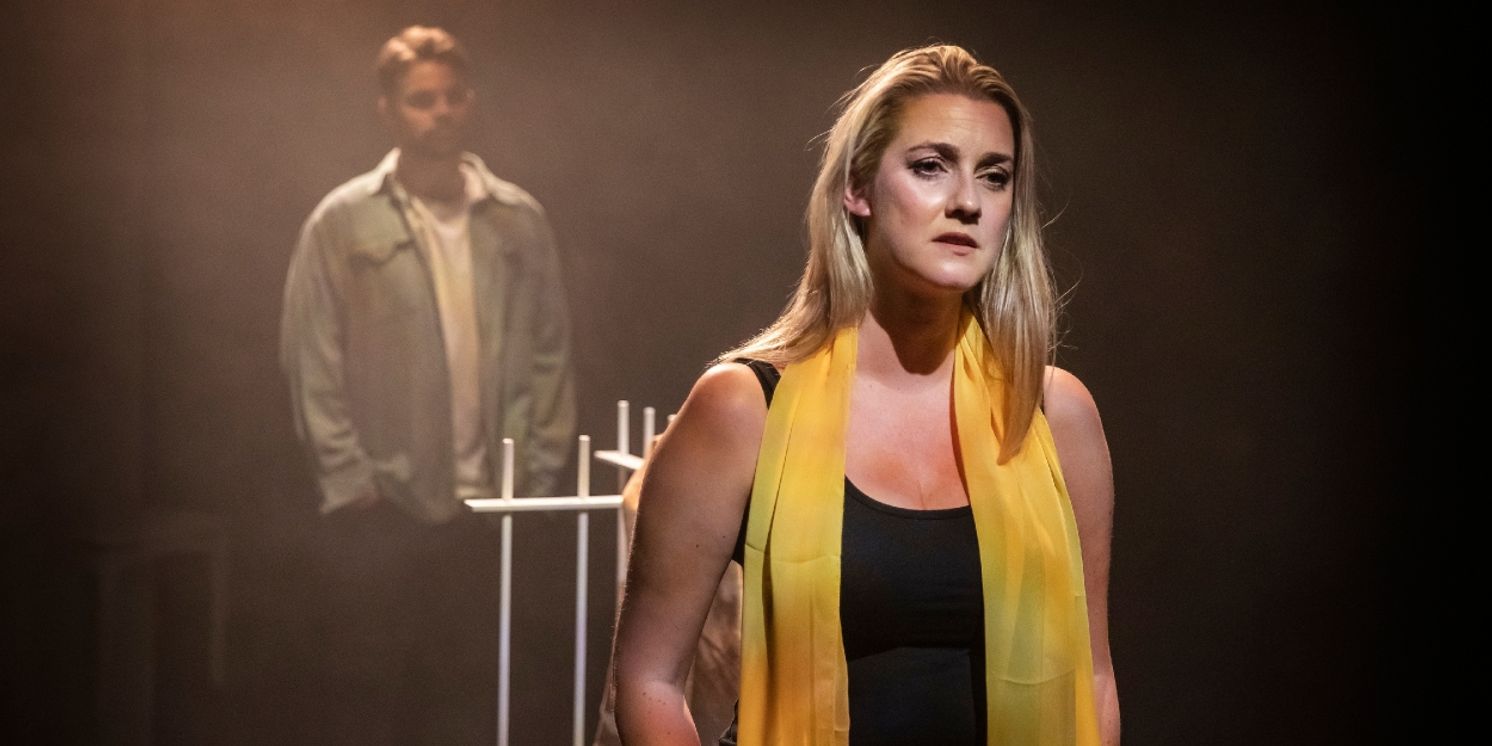Review: THEN, NOW & NEXT, Southwark Playhouse
This original musical ten years in the making should have stayed in the drafts a little longer.

![]() The pandemic has created loads of brilliant theatre. This isn’t part of it.
The pandemic has created loads of brilliant theatre. This isn’t part of it.
When long-time friends Christopher J Orton and Jon Robyns found themselves stuck during lockdown, Orton unearthed an old idea they had in their younger days during a run of Spamalot at the Playhouse. He sent an email to Robyns and they got working. The result is a sadly lacklustre musical about a woman who can’t move on after the premature death of her fiancé, Stephen. Moving back and forth with - credit where credit is due - deft jumps along the timeline, Alex essentially compares her former life with her new boring relationship with Peter, whom she has a child with.
The writers want so badly for this to be a soberly romantic mix between The Notebook and The Bridges of Madison County via Dear Evan Hansen, but they only manage to hit the nails of its coffin. It’s unexciting, unengaging, and as deep as a rivulet. The characters are one-dimensional figurines, including the protagonist, whose only personality trait is her grief and inability to love anyone else but Stephen.
A traditional contemporary-pop musical-theatre score built on mildly catchy motifs can’t save songs that say very little. There are a few highlights (although nothing of exceptional note) in numbers like “She’s Mine” and “Fine”, but the tunes generally sound conventional and overly familiar. The story is equally dull. There might be a case for an exploration of how bereavement turns young naivety into mature resignation, but they never take the step to get there, preventing the show from meaning anything at all.
The cast are individually excellent, but lack chemistry and often come off as if they were in totally different productions. For a project about loss, there aren’t many opportunities for reflection but plenty of attempts at comedy. Alice Fearn is phenomenal, dazzling even in such a sluggish role. Her performance is measured by an intense sobriety, but her pain is constantly overshadowed by the OTT comic reliefs that juxtapose it. While this tonal clash brings out her sadness, the balance is too skewed for it to work properly.
The only extended poignant moment comes at the end, when Alex meets an unnamed man on a visit to Stephen’s grave. He shares his experience of being a widower and coping with losing his husband 20 years prior and Alex magically decides to pick herself up and stop doing a disservice to herself and those around her, something that not even her new boyfriend or child or therapist managed to do.
Fearn is surrounded by great voices. Peter Hannah is Peter, her present-day partner and father of their toddler. He is a funny, slightly eccentric man whose film quotes and magic tricks fall as flat as the majority of the jokes. Hannah brings a sweet tenor to the table, but is directed to be too musical theatre-y while Fearn is collected and pensive. Peter struggles with the idea of Stephen and is aware that Alex doesn’t love him as much as she did him. He tries to have a deep conversation about the matter, but she always pulls back. This sort of mirrors the outcome of the whole piece. They strive to have reflections that would move their development forward, but Orton and Robyns stall it.
Joining Fern and Hannah is Joaquin Pedro Valdes as the energetic Stephen, whose life with Alex is filled with fun. From backpacking to getting caught having sex in a public toilet, it’s distinctly different from her relationship with Peter. Tori Allen-Martin and Justin Brett conclude the company, playing an array of side roles who are mainly humorous oddballs. Allen-Martin is particularly eclectic, dragging out of the audience a few genuine laughs (especially as club animal Tara). She is a delight, but, once again, doesn’t belong tonally.
An all white design by Bob Sterrett is the backdrop for Julie Atherton’s crafty direction. The temporal back and forth is eased at first by characters not-so-casually mentioning Alex’s age. It’s an exceptionally blatant way out of the issue, it’s just one example of the pedestrian book. Atherton handles the time-hopping scene changes smoothly, employing lights and sound as a code of sorts while the actors solemnly stare at each other carrying set pieces and props.
Ultimately, although this musical took ten years to finish, it might have been better for it to stay in the drafts for a little longer. At this stage, it’s unfortunately dreary and slow, mundane, and non-committal to the thematic insight it deserves. It’s crippled with fatigue and emptiness.
Then, Now & Next runs at Southwark Playhouse until 29 July.
Photo credit: Pamela Raith
Reader Reviews
Videos

